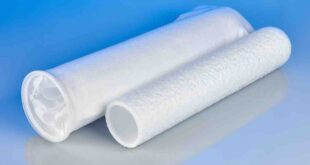Ramya Sriram discusses the trends in sustainable cosmetics and the things that you should look out for
Consumers aren’t just interested in the product – they’re interested in the process too.
More and more cosmetic manufacturers are formulating natural and eco-friendly products as public interest in sustainability increases.
From excessive, non-recyclable packaging to a perceived lack of transparency over ethical practices, the cosmetic industry is not known for being eco-friendly.
However, beauty is waking up to consumer demand and the natural and organic beauty market is estimated to reach $54bn by 2027.
Formulation chemists are now reformulating products for cosmetics businesses by including more natural and environmentally friendly emulsifiers and ingredients.
If you do this, you will be able to meet the growing salience of sustainability but, before you jump into developing your eco-friendly cosmetic product, there are a few trends worth knowing.
Sustainable cosmetics
At the heart of the natural cosmetics movement is the value of sustainability.
Beauty brands and manufacturers now realise that it isn’t a fad and consumers now expect transparency over their sustainability programmes before choosing whether or not to buy.
Companies now seem united on reducing the impact of plastic pollution. They appear to be changing their packaging strategies and refining their formulations all the time.
Lush is pioneering zero packaging by making its products in solid form and in January 2019 the brand opened Britain’s first packaging-free cosmetic shop.
Many companies are now also participating in the #waterlessbeauty campaign. Water is the cosmetic industry’s most used product, however, there are concerns that demand for water could outstrip supply.
L’Oréal has committed to a 60% reduction in water consumption per product by 2020, while Unilever is committing to halving the water associated with the use of its products by 2020.
Beyond microbeads
Since the EU and UK ban on microplastics in cosmetics came into effect, natural beauty has been leading the way in offering natural, sustainable alternatives to microbeads in skincare and scrubs.
Companies are now producing products using oats, salt, dairy and even coffee as substitutes so that products meet the regulations.
One purpose of microbeads is to exfoliate the skin.
However, it is possible to get this effect without using plastic. If you are producing a cosmetic or skincare product, a freelance formulation chemist can help you find the perfect substitute for microbeads.
Vegan beauty
The number of people living plant-based lifestyles is higher than ever.
Consumers are also investing more in beauty and skincare products that are cruelty-free, made with plant-derivatives and include no animal products. This is one of the latest trends in natural cosmetics and these ingredients are found in products ranging from moisturisers and cleansers to soaps and fragrances.
A formulation chemist can help make your products vegan-friendly by suggesting substitute ingredients that are not derived from animals. If you are planning on entering the world of natural beauty, creating vegan products is a step in the right direction.
Ramya Sriram, is digital content manager of online platform for freelance scientists Kolabtree.
 Engineer News Network The ultimate online news and information resource for today’s engineer
Engineer News Network The ultimate online news and information resource for today’s engineer





